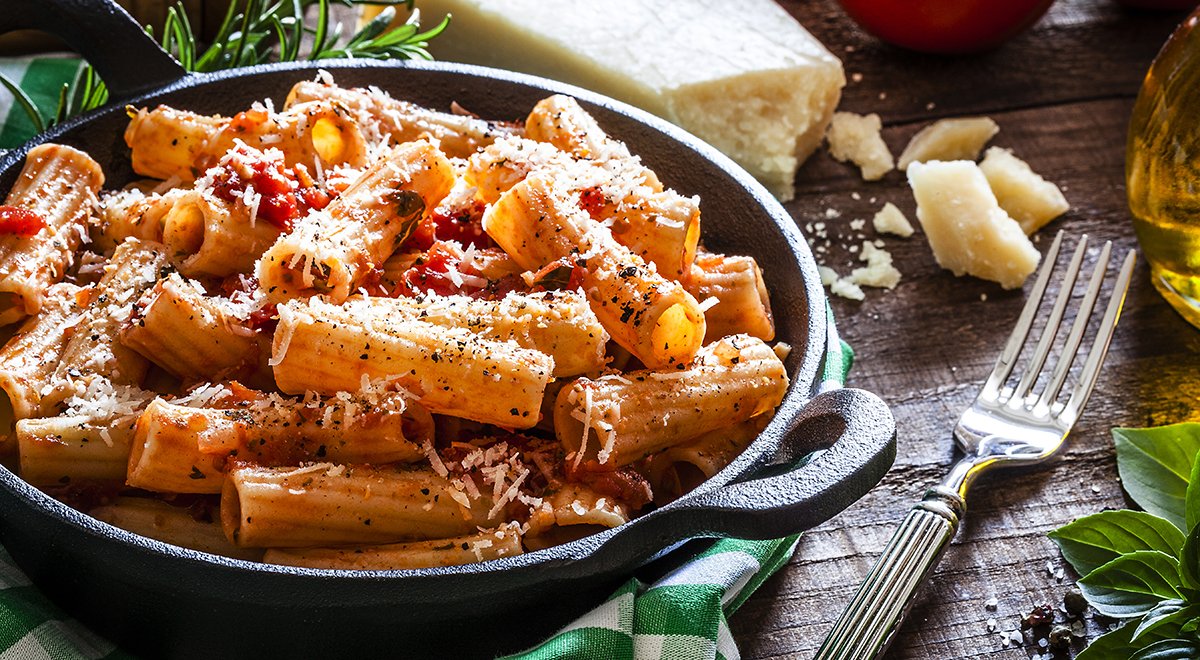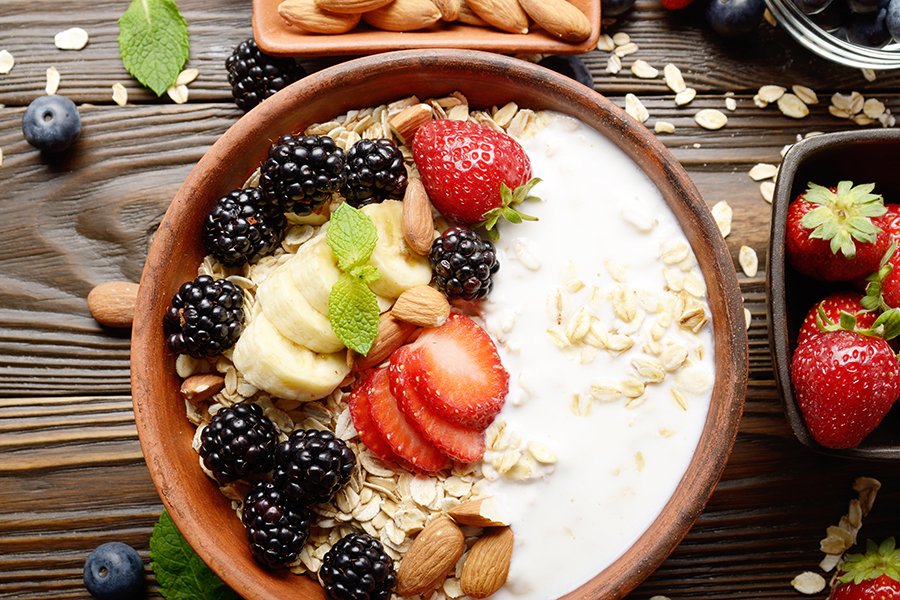
If you’re helping provide snacks for your athlete’s team, or you’re trying to give nutritional guidance to your child, you may be subscribing to some traditional sport snacks – think orange slices – and fueling traditions – like pasta parties – that you heard over the years. While many of the fueling traditions that you’ve heard about are going to be okay for most athletes, there are some modern tweaks you can make to ensure that your athlete is properly fueled and getting the nutrition he or she needs.
Myth: Pre-Competition Pasta Parties
Why it works: For decades, marathoners have been all about carb-loading with pasta and pizza the night before a competition. This is done to fuel muscles by topping off glycogen stores in the body.
Why it doesn’t: The idea of carb-loading is no longer entirely supported. Sure, eating a carb-dense meal the night before a hard or long effort is helpful, but your athlete shouldn’t make a massive shift from his or her normal meal. And typically, carb loading is applicable to endurance sports, not to a baseball or volleyball game. A pasta meal can also lack protein, so your young athlete may end up hungry before his or her competition.
Make it current: Make sure your athlete’s plate is balanced by adding some form of protein, like chicken, meatballs, or a vegetarian-friendly protein.
Myth: Orange Slices on the Sidelines
Why it works: Using whole foods for fuel is a great practice to teach young athletes, and orange slices provide a quick hit of simple sugar in the form of fructose. They can also be a refreshing snack in the middle of a hot practice.
Why it doesn’t: Orange slices are great, but for harder or longer efforts, they may not be enough to refuel athletes all the way. You also may have some athletes who don’t do well with a lot of fructose, the sugar found in oranges.
Make it current: Add chunks of banana to the mix, and for more intense activities and/or hot weather, consider adding a salty snack like pretzels for simple carbohydrates plus electrolytes.

Myth: Breakfast is the Most Important Meal of the Day
Why it works: This one is mostly true. Athletes need fuel for hard efforts, whether that’s early morning swim practice or a competition later in the day, and skipping breakfast usually leads to lower intake (or unhealthy food decisions) later in the day.
Why it doesn’t: Some athletes will struggle to eat a full normal breakfast (like oatmeal, or eggs) when competition is early in the morning. And for athletes who have practices later in the day, fueling appropriately at lunch is just as important as eating a good breakfast!
Make it current: If your athlete is doing an early morning practice or competition, help them find foods that are easy to eat and digest. This might mean a banana, toast with a bit of peanut butter, or even a smoothie. After the practice or competition, your athlete can enjoy a heartier meal. And for athletes with later competition times, make sure they’re eating a good breakfast, but also prioritizing a lunch that leaves them satisfied and ready for competition.
Myth: All Gatorade, All the Time
Why it works: Sports drinks provide critical electrolytes and carbohydrates for athletes, especially for those who aren’t comfortable eating before or during a competition or race.
Why it doesn’t: Young athletes simply don’t need as much sport drink as an elite marathoner would, especially in sports like baseball where they’re only sprinting for short periods and are otherwise standing in place or sitting.
Make it current: If your athlete is doing a sport that doesn’t require constant motion, consider diluting the sports drink with water to half strength, or making your own electrolyte drink. If your athlete is doing a more sustained effort like soccer, tennis, or cross-country running, a sports drink is fine, but make sure that after the game and during rest periods, they’re also drinking regular water. Don’t let sports drinks become a water substitute! To find out just how much water and electrolytes your athlete needs, try calculating their sweat rate.
About TrueSport
TrueSport®, a movement powered by the experience and values of the U.S. Anti-Doping Agency, champions the positive values and life lessons learned through youth sport. TrueSport inspires athletes, coaches, parents, and administrators to change the culture of youth sport through active engagement and thoughtful curriculum based on cornerstone lessons of sportsmanship, character-building, and clean and healthy performance, while also creating leaders across communities through sport.

